Belfast High Court rejects Brexit challenges
- Published
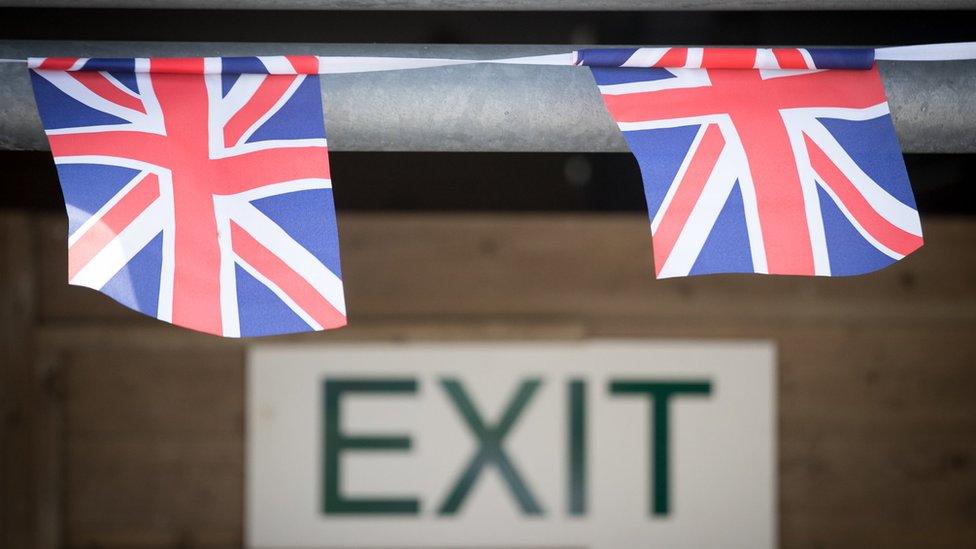
A landmark legal challenge against Brexit has been rejected at the High Court in Belfast.
Two separate proceedings, one by a cross-party group of MLAs and another from victims' campaigner Raymond McCord, were heard earlier this month.
A judge ruled there was nothing in the 1998 Good Friday peace agreement to prevent the government triggering Article 50, the formal legal process for leaving the EU.
The UK government welcomed the ruling.
But sterling hit an eight-day low against the euro late on Friday morning, with analysts speculating that the ruling had weighed on the currency.
All of the issues raised by the applicants were rejected by the court, external.
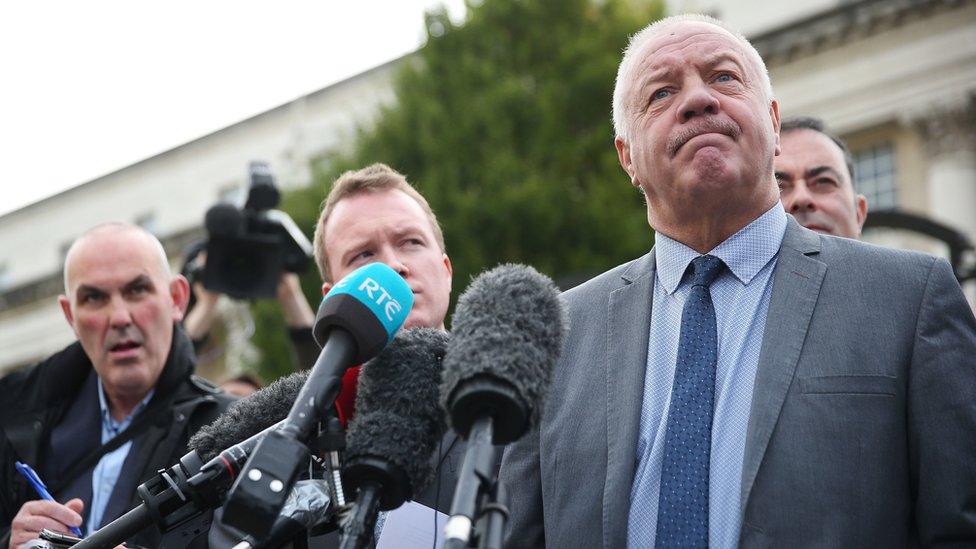
Raymond McCord's barrister claimed Brexit would have a 'catastrophic effect' on the peace process
Mr McCord said that "without a doubt" he would be taking his case to the Supreme Court.
"The judge has left the door open," he said.
"We're right in what we're doing for the people of this country."
The challenge by politicians from Sinn Féin, the Social Democratic and Labour Party (SDLP), the Alliance Party and the Green Party suggested the UK government could not trigger Article 50 without a parliamentary vote.
They said the Brexit decision should be examined and voted on by parliament or, failing that, by the Northern Ireland Assembly.
Earlier this month, the High Court in London heard that the need for parliament to give its approval before the Brexit process starts is of huge "constitutional importance".
Major constitutional changes
Mr McCord, whose son was murdered by loyalist paramilitaries and who now campaigns for victims of violence during Northern Ireland's Troubles, brought Friday's other legal bid.
His challenge came amid worries that the Brexit vote could mean an end to EU funding for peace projects that help Troubles victims.
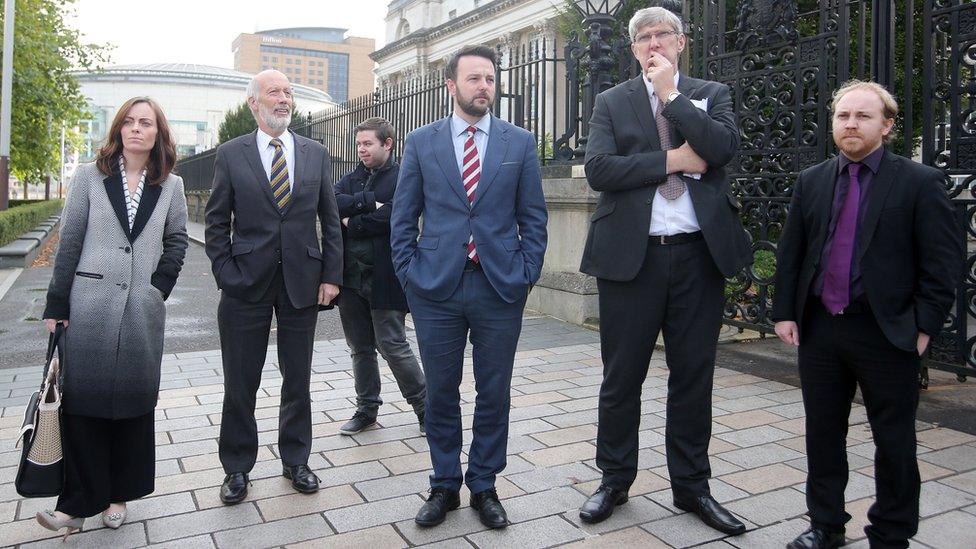
Politicians, including SDLP's Colum Eastwood (centre) and Sinn Féin's John O'Dowd (second right), brought one of the legal challenges against Brexit
His lawyer argued that the Good Friday Agreement meant Westminster had given sovereignty of Northern Ireland over to its people, and that leaving the EU would have a "catastrophic effect" for the peace process.
Major constitutional changes such as leaving the EU could not therefore be imposed by a Westminster government, Mr McCord's barrister said.
But the judge ruled that prerogative power could still be used, arguing that triggering Article 50 is merely the start of a legislative process in which acts of parliament will be necessary.
"While the wind of change may be about to blow, the precise direction in which it will blows cannot be determined," he said.
'Hugely detrimental effect'
He concluded that discussing the use of prerogative power to enact the EU referendum result was not suitable for a judicial review.
It had also been argued that the Good Friday Agreement gave the power of sovereignty to the people of Northern Ireland and that the Westminster government could not therefore make the region leave the EU.
But the judge rejected that argument as well, saying he could not see anything in the agreement or the relevant legislation that confirmed that view.
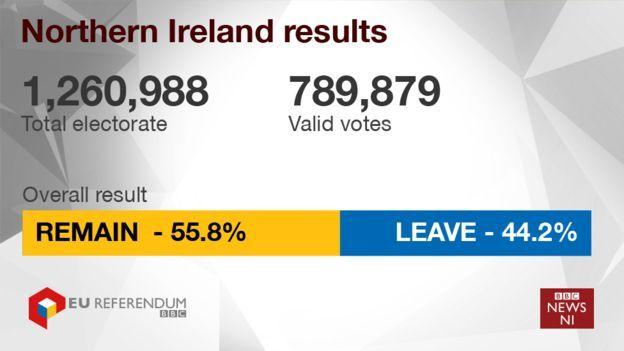
The majority of NI voters wished to remain in the EU
Sinn Féin's John O'Down said Remain-supporting politicians would "continue to explore every legal and political option open to us" to ensure that citizens' rights are "protected and upheld".
SDLP leader Colum Eastwood acknowledged that the cost of taking the case to the Supreme Court could be an issue.
But he added: "We believe very, very strongly that Brexit would have a hugely detrimental effect on people here," he said.
"It would be a huge constitutional shock to people and to the political process here."
Watched by Westminster
Remaining within the EU would give Troubles victims a better chance of getting justice, Mr McCord said.
"The British government have no interest in victims," he added.
Mr McCord's barrister Ciaran O'Hare said the judgement was "no surprise" and they welcomed the ruling.
"It is a very important constitutional case and it will have to dealt with in the Supreme Court," he said.
Welcoming the ruling, a government spokesman said: "As we have always made clear, we stand by our commitments under the Belfast Agreement and the outcome of the EU referendum doesn't change this."
The case has been closely watched by Westminster, especially as similar hearings are due for judgement in the near future.
- Published5 October 2016
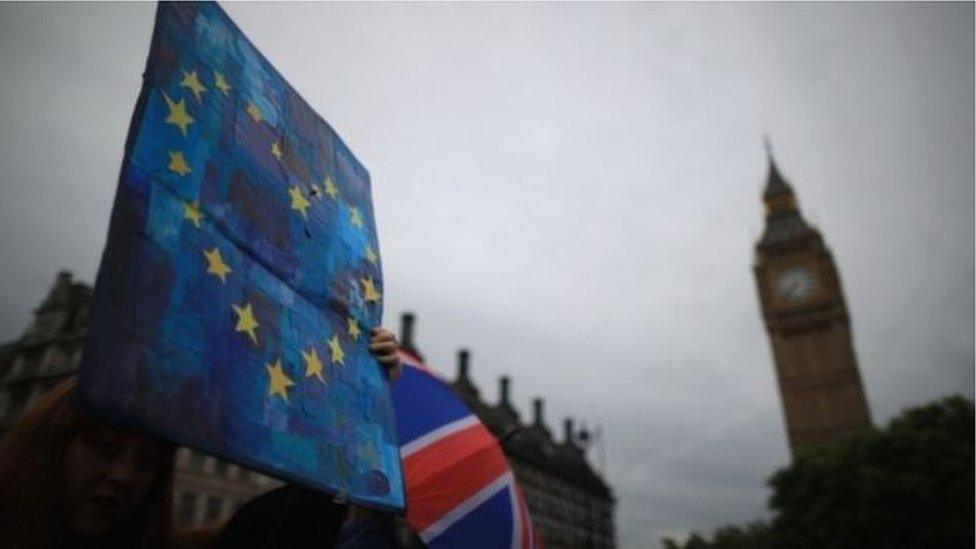
- Published13 October 2016
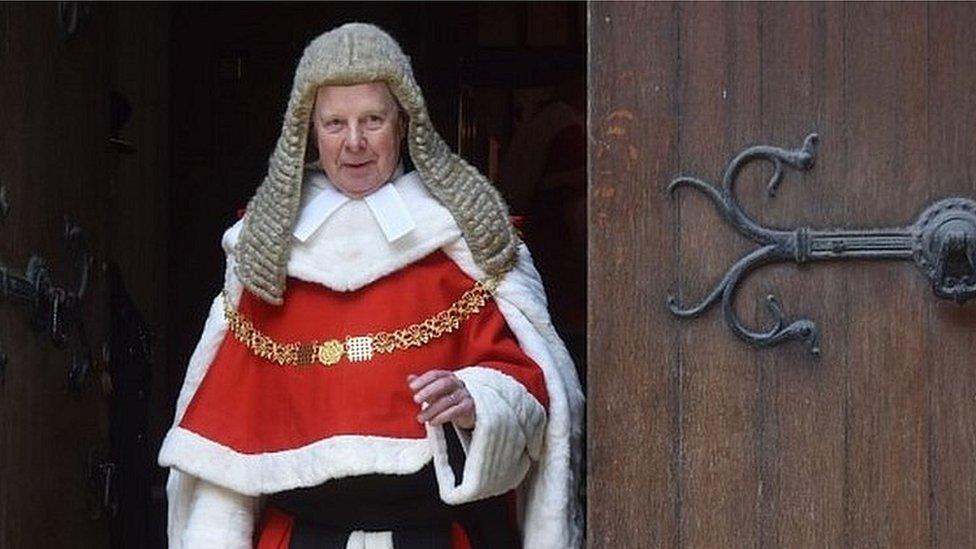
- Published20 October 2016
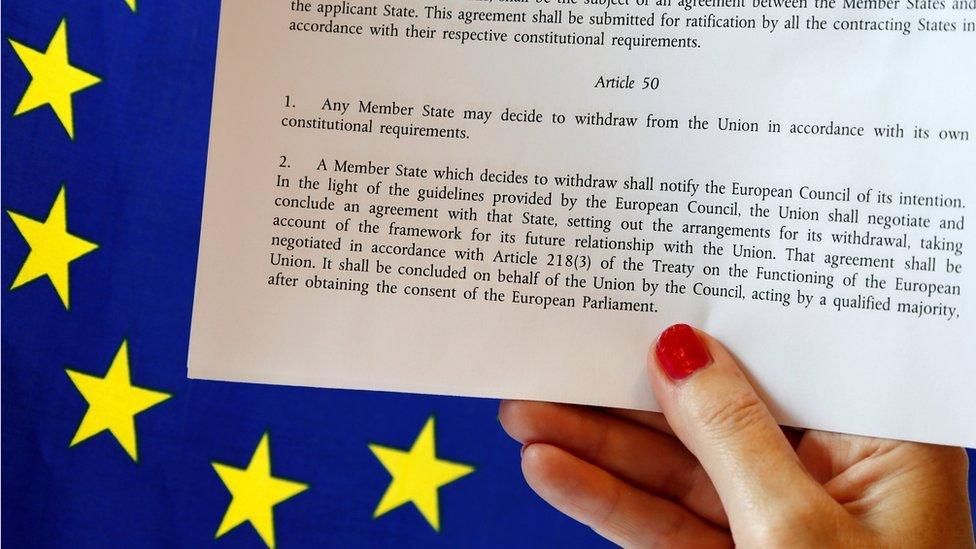
- Published12 October 2016
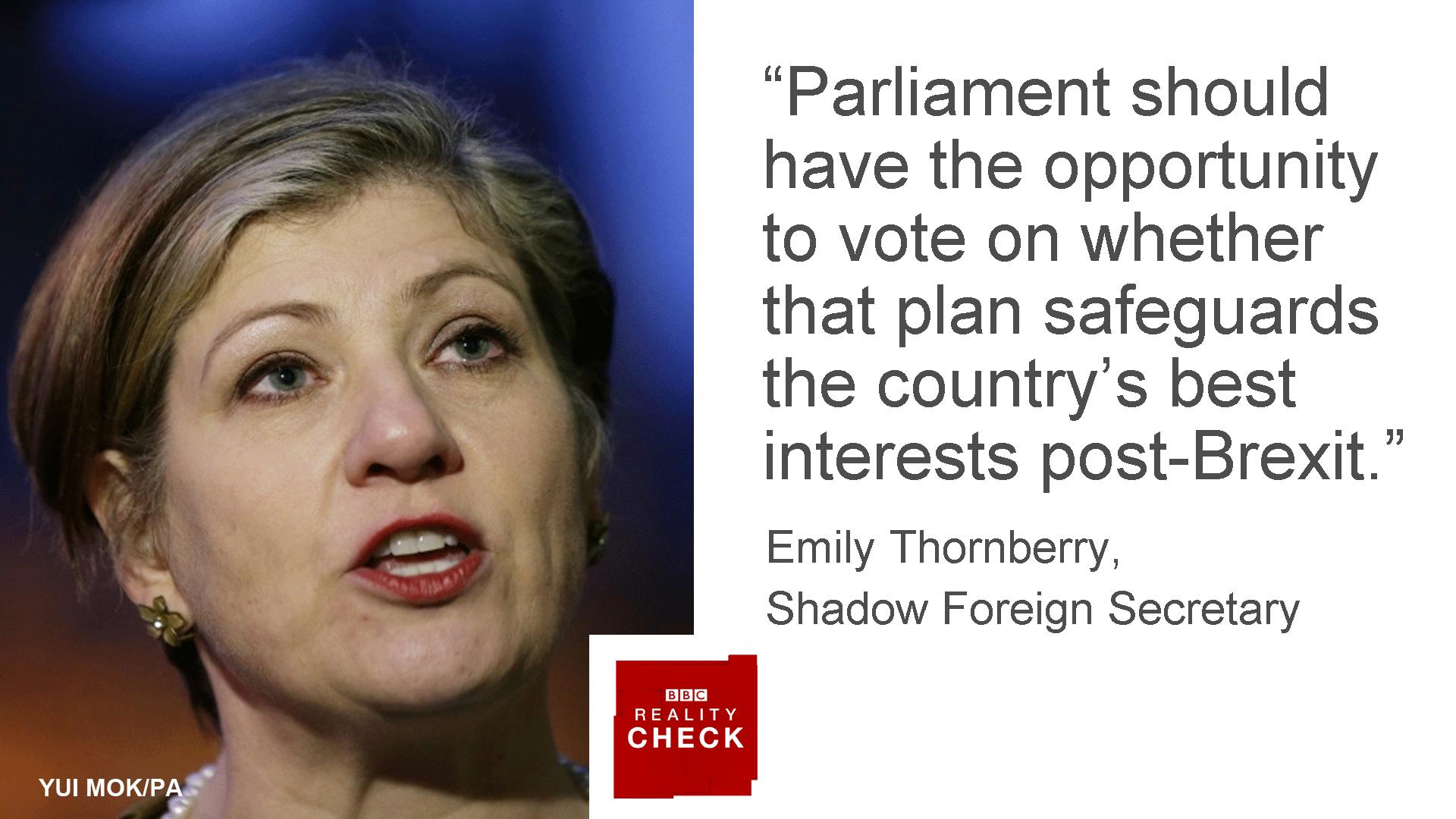
- Published30 December 2020
